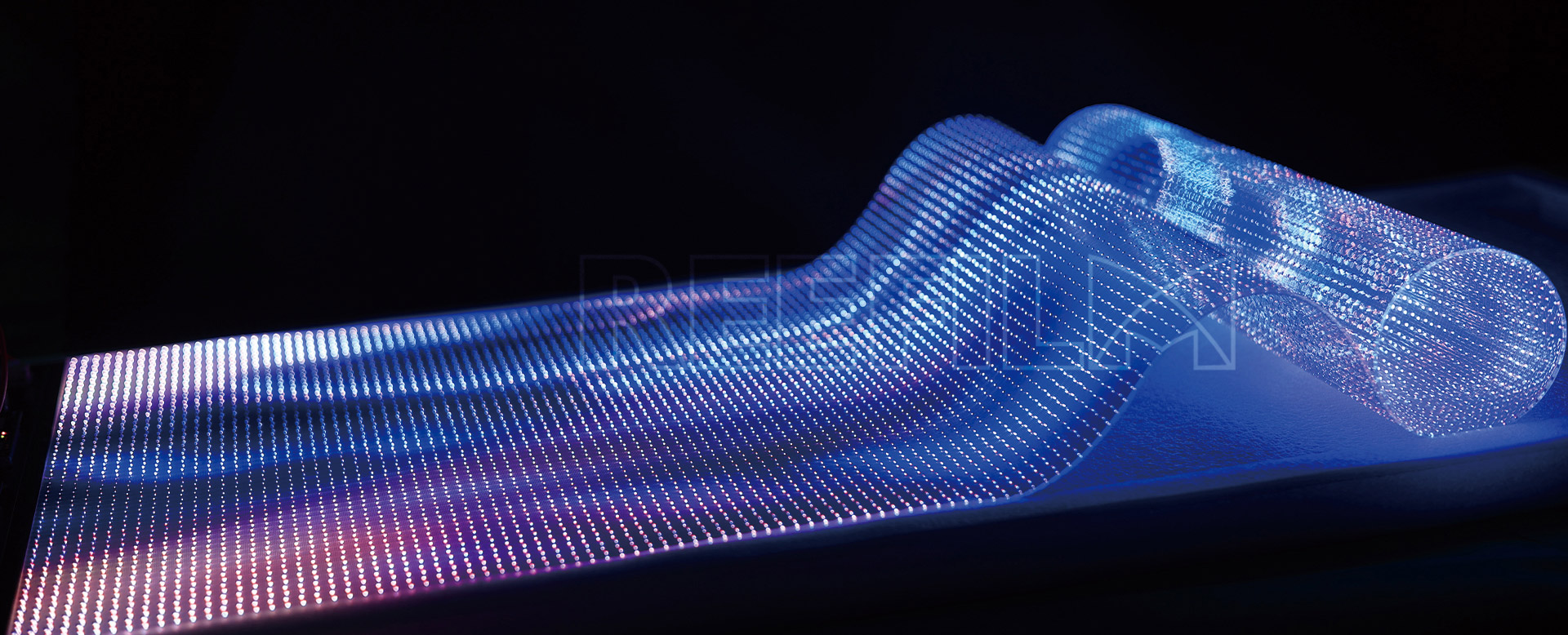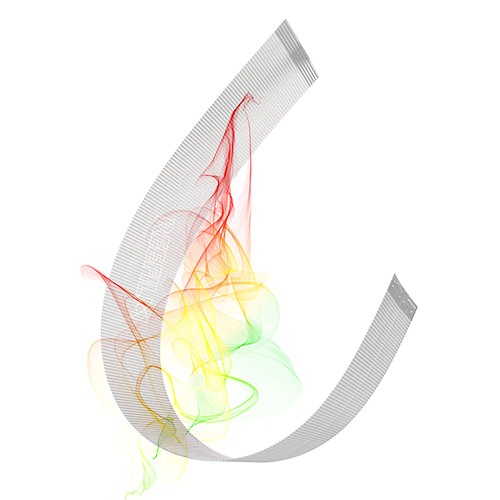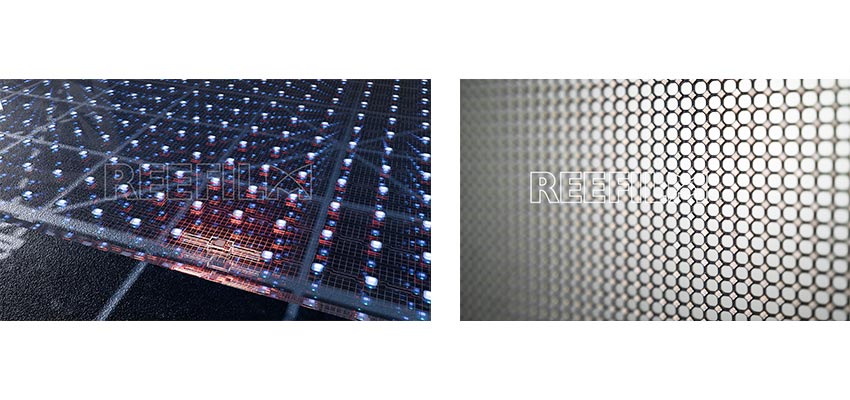

The Holographic LED Screen is an innovative display technology that combines holography and LED technology to create captivating visual experiences. It allows for the projection of three-dimensional (3D) holographic images in mid-air, providing a new dimension to the way we perceive and interact with digital content.
Holographic Projection: The Holographic LED Display utilizes holographic projection techniques to create 3D images that appear to float in space without the need for any additional viewing aids like glasses or VR headsets.
Realism and Immersion: This cutting-edge technology delivers stunningly realistic visuals with an impressive depth of field, allowing viewers to experience content in a highly immersive manner.
Transparent Display: The screen itself is transparent, enabling viewers to see both the holographic content and the background environment simultaneously. This feature enhances the believability of the holographic elements.
Wide Viewing Angle: Holographic LED screens offer a wide viewing angle, ensuring that the 3D visuals can be appreciated by multiple viewers from various positions around the screen.
High Brightness and Clarity: The LED technology used in the screen ensures high brightness levels and crystal-clear image quality, even in well-lit environments.
Interactivity: Some advanced models of Holographic LED Screens are equipped with interactive capabilities, allowing users to engage directly with the holographic content through gestures or touch.
Versatility: These screens can be used for a wide range of applications, including advertising, product demonstrations, artistic displays, education, entertainment, and more.
Energy-Efficient: LED technology is known for its energy efficiency, making Holographic LED Screens an eco-friendly choice compared to traditional display technologies.
Scalability: Holographic LED Screen can be scaled to various sizes, making them suitable for small exhibitions or large-scale installations in public spaces.
Future Potential: As the technology continues to advance, we can expect even more impressive features and applications, opening up new possibilities for various industries.
Holographic LED Screens combine holography and LED technology to create visually stunning 3D displays. With their realism, interactivity, and versatile applications, they represent a significant step forward in the field of visual communication and entertainment.
support breakpoint continuation function
The fault lamp beads should be kept of,avoid the phenomenon of steady on and random flashing, any single point of failure will not affect other lamp beads
| Model | RS-P6.25 | RL-P6.25 |
| Pixel spacing | L(6.25mm)W(6.25mm) | L(6.25mm)W(6.25mm) |
| Pixel density | 25660 points /㎡ | 25660 points /㎡ |
| Module size | 1200mm*250mm | 1500mm*250mm |
| LED light | 1515(light drive in one) | 1515(light drive in one) |
| Breakpoint continuation | √ | √ |
| Thickness | 1-3mm | 1-3mm |
| Power Consumption | Avg:200W/㎡,Max:600W/㎡ | Avg:200W/㎡,Max:600W/㎡ |
| Weight | Less than3kg/㎡ | Less than3kg/㎡ |
| Permeability | >80% | >80% |
| Life span | >100,000 | >100,000 |
| Power supply requirement | 220V±10%;AC50HZ,Three-phase five-wire | 220V±10%;AC50HZ,Three-phase five-wire |
| Brightness | White balance brightness 2000-4500cd/㎡; automatic and manual adjustment according to ambient brightness | White balance brightness 2000-4500cd/㎡; automatic and manual adjustment according to ambient brightness |
| Angle of view | H160,V140 | H160,V140 |
| Grayscale level | ≥16(bit) | ≥16(bit) |
| Color Temperature | 5500K-15000K(Adjustable) | 5500K-15000K(Adjustable) |
| Drive mode | static state | static state |
| Attenuation rate | Less than 0.05% in 2 years | Less than 0.05% in 2 years |
| Refresh rate | >3840HZ | >3840HZ |
| MTBF | > 10000H | > 10000H |
| LED bead failure rate | less than one ten thousandth and is discretely distributed | less than one ten thousandth and is discretely distributed |
| Control system | Colorlight/Nova Synchronous/Asynchronous | Colorlight/Nova Synchronous/Asynchronous |
| Use environment | ◆Working environment:-10~+65℃/10~90%RH ◆Storage environment:-40~+85℃/10~90%RH | ◆Working environment:-10~+65℃/10~90%RH ◆Storage environment:-40~+85℃/10~90%RH |
| Installation mode | Mounting, lifting, fixing, support any size cutting, bending | Mounting, lifting, fixing, support any size cutting, bending |
A holographic LED screen employs a combination of advanced technologies to create the illusion of three-dimensional images floating in mid-air. The screen utilizes an array of high-density LEDs to emit light towards a special holographic film or transparent screen. This holographic film contains microstructures that diffract light in a way that projects different images to viewers from various angles. As a result, when the LED display projects specific content, it appears as if the objects or visuals are suspended in the air, adding a sense of depth and realism. The synchronization between the LEDs and the holographic film is precisely calibrated to ensure accurate image projection and maintain the illusion.
Holographic LED screens find a wide range of applications across various industries. They are extensively used in advertising and marketing, capturing the attention of passersby with eye-catching and immersive visual displays. Moreover, they have become popular in entertainment events and exhibitions, enhancing the overall experience for audiences. Holographic LED screens are also employed in product presentations, enabling businesses to showcase products in a more engaging and interactive manner. Additionally, these screens are utilized in educational settings, providing an innovative approach to teaching complex subjects through visually stimulating holographic representations.
Yes, holographic LED screens are designed to withstand outdoor environments and adverse weather conditions. Manufacturers utilize durable and weather-resistant materials to ensure the screens' longevity and performance under varying temperatures and humidity levels. These outdoor holographic LED displays are commonly used in events, storefronts, and public spaces where they can capture a larger audience and leave a lasting impression. The high brightness and contrast levels of modern holographic LED screens also make them easily visible in bright outdoor settings, making them a practical choice for open-air applications.
The primary distinction lies in the visual effect and presentation. Traditional LED displays provide two-dimensional images and videos, viewed on a flat screen, while holographic LED screens create three-dimensional holographic projections that appear to float in space. Traditional LED displays are commonly used for broadcasting information and typical digital signage applications, whereas holographic LED screens are employed when a more immersive and attention-grabbing display is required. The technology behind holographic LED screens demands a specific setup with holographic film, whereas traditional LED displays can be used without any additional components for standard content playback.
Yes, you can create custom content for a holographic LED screen. Most holographic LED screen providers offer software and tools that allow users to design and develop their holographic content. This content creation process involves using specialized 3D modeling and animation software to craft visuals that take advantage of the holographic display's unique properties. With creativity and artistic vision, you can produce captivating holographic content tailored to your specific needs, whether it's for advertising, entertainment, education, or any other application.
The cost of holographic LED screens can vary based on factors like size, resolution, and manufacturer. Generally, holographic LED screens are more expensive than traditional LED displays due to the additional technology and components required for the holographic effect. However, as the technology becomes more widespread and accessible, prices have been gradually decreasing. Small-scale holographic LED screens suitable for personal use may be relatively affordable, while larger, high-resolution commercial-grade displays can be more expensive. Despite the initial investment, businesses often consider holographic LED screens a worthwhile investment due to the enhanced visual impact and the potential for attracting more customers and viewers.
PDF download